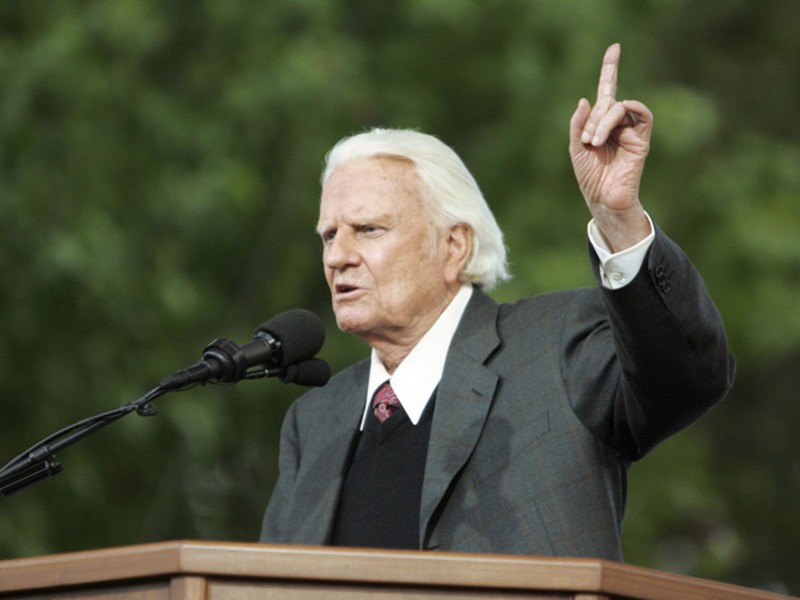Billy Graham’s legacy for Christians, evangelical and otherwise
As the years passed, Graham’s list of doctrinal dealbreakers got shorter. He kept preaching his simple, nonsectarian call to faith.

When Billy Graham died February 21 at age 99 in Montreat, North Carolina, the Christian world lost one of its most influential voices. Born on a farm near Charlotte, Graham spent the early years of his ministry mainly as an itinerant Youth for Christ speaker in the Midwest. But highly publicized crusades in Los Angeles in 1949 and in New York in 1957 hurled him into the national and international spotlights. He held that iconic position for the rest of the century and beyond.
Graham’s achievements piled up like snowdrifts. Most notably, nearly 215 million people around the world heard him preach in person, a figure possibly exceeded only by John Paul II. He scored a spot on Gallup’s list of Ten Most Admired Men in the World 59 times, nearly twice as many as his closest rival, Ronald Reagan. Besides more than 30 books (authored or authorized), he introduced the Hour of Decision national radio program in 1950; the Hour of Decision quarterly network television program in 1951; World Wide Pictures, a feature-length film division, in 1951; My Answer, a daily syndicated advice column, in 1952; Christianity Today, a serious theological fortnightly, in 1956; and the popular monthly Decision in 1960. Most of these ventures reached millions of people.
Graham’s international crusades and evangelism conferences—especially at Lausanne in 1974—helped make his name a household word not only in the United States but in many other parts of the world. A friend of ten successive presidents (and close friend of Lyndon Johnson, Richard Nixon, Ronald Reagan, and George H. W. Bush, along with their First Ladies), Graham enjoyed extraordinary access to the pinnacle of political and cultural power. Stalwarts saw God’s hand in all this, but journalists saw Graham’s own tireless hands too. Whatever else Graham was, he was a man of bold ambitions.





